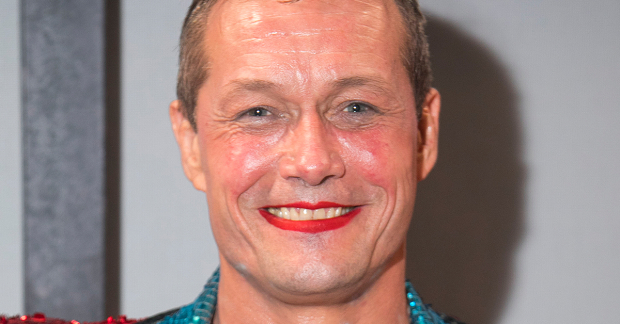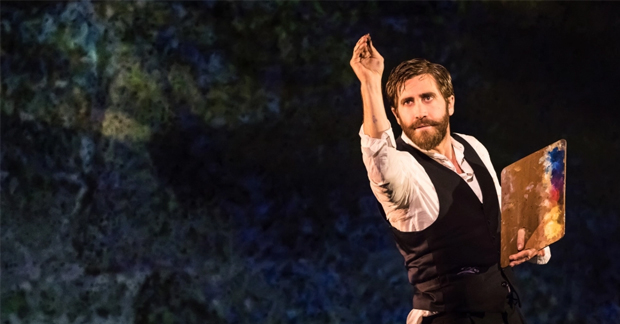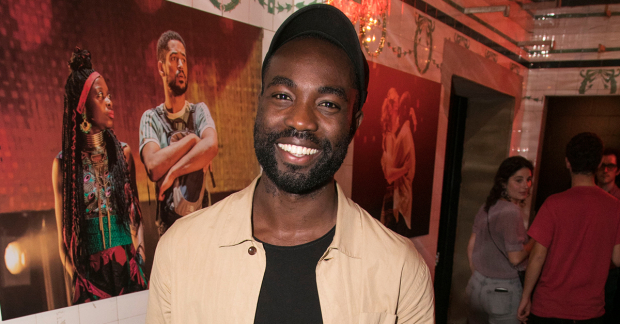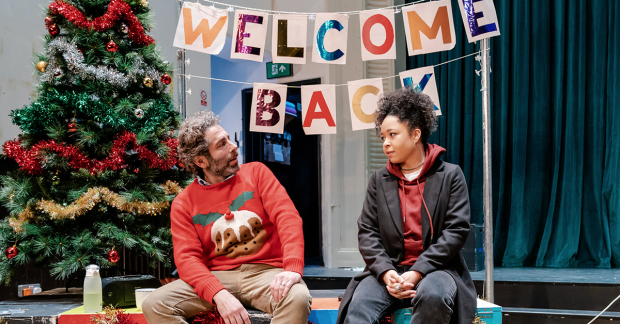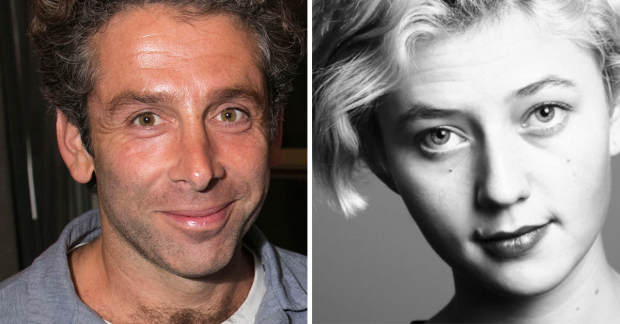Mike Bartlett: Festive stories can be bleak – just look at A Christmas Carol, or the EastEnders Christmas special
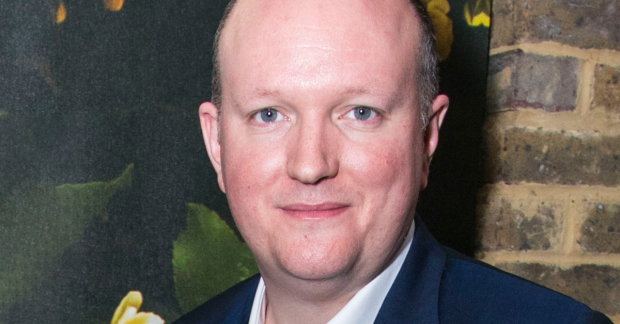
© Dan Wooller for WhatsOnStage
You'd think Olivier Award-winner Mike Bartlett would rest on his laurels at some point – his plays like King Charles III, Albion and Bull have all picked awards across the UK in recent years, while his TV shows – Doctor Foster, Press and the newly released Sticks and Stones all garnered significant praise. 2020 looks as though it'll continue the momentum, with revivals of two shows – Love, Love, Love and Albion, already announced. Just before the General Election we spoke to Bartlett about Snowflake, his 2018 play that premiered at the Old Fire Station in Oxford, which now has its London premiere at the Kiln Theatre.
Why did you want to write a Christmas play?
It's very nice to get into the Christmas spirit – we've had tinsel in the rehearsal room. But also Christmas stories for adults often deal with bleak things – A Christmas Carol for example, or the EastEnders Christmas special. It isn't a time to flinch from the difficulties of being alive right now – Christmas is a very hard time for a lot of people and it's important to investigate those stories truthfully. That brought me to the story of Snowflake – of a father waiting for his daughter to come home – this advent idea that something's coming. That felt very archetypal – the separation of family and the desperation to reunite. You also need a bit of heart, redemption, and warmth.
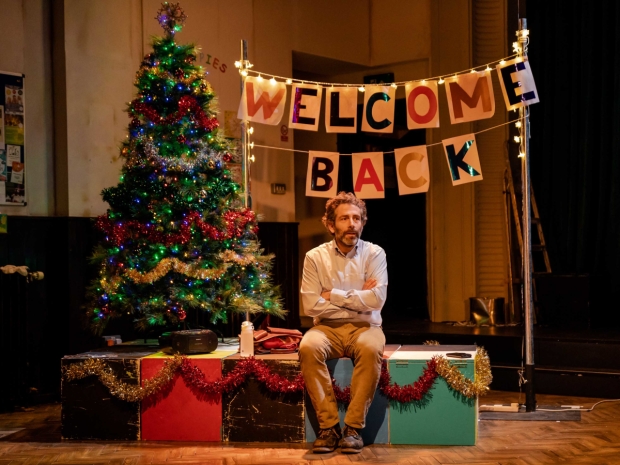
© Manuel Harlan
And you've revised the play for London?
The piece had a happier ending in Oxford and, well, I don't know anymore. Right now we're still investigating, and I can't say if it's 100 per cent happy. One of the changes that I've made is that, one of the characters, Natalie, is now from Kilburn. I lived in Kilburn for 15 years and so I've given her very specific references made for people from around there. For me, it's pleasing that it's a play about home and going back home. Boris Johnson features in the play, so I might need to do some re-writing after election night.
The play sees two generations coming into conflict – how did you find a middle ground as a writer?
With anything I write, if I find that I'm siding with one character more than the other then I don't have a play. I always care more about having a dialectic – that's when it's most exciting. We're so encouraged to be 100 per cent in our opinions and views all of the time, and I don't know why. We should all take pride in changing our minds and doing things that are contradictory. That used to be an uncontroversial thing – you don't have to join a tribe and be on one side.
Underpinning a lot of it is capitalism – we live in a time when people make more money if they have a stronger opinion about something. If you look at the algorithms, social media and journalism, by saying something outrageous you get more clicks than if you say something serious and more complicated. It's so important to fight for the long-form and the complicated because that's where the truth is.
So the piece is grounded in Oxford and Kilburn – why did you choose these locations?
I've ended up writing it in two places where I've spent a lot of time – there wasn't a master plan, it just happened. All of my plays are very personal to me, and sometimes I won't realise why until they've been revived or once they're in previews.
What has it been like working at the Kiln?
It felt like bringing it home to stage it in somewhere I knew so well. There's such energy in that theatre. Every member of staff is so sincerely and fully committed to this full programme of work, and Indhu [Rubasingham] is just rocking it. That's when you know that a theatre is doing the right thing.
A lot of your plays deal with contemporary issues – do you think people expect the Mike Bartlett 'take'?
Every time there's a royal story I get contacted – I know there are people looking for an iambic play about Prince Andrew. But I think I've inherited a Royal Court mentality – I always want to ask whether or not a play needs to exist.
What have you been wowed by on stage recently?
It's a while back now – I have kids so I don't go to the theatre as much – but I really enjoyed Ned Bennett's production of An Octoroon. It felt like it had a lot of serious 'play' in it, rooted in the politics of the subject, and nothing felt arbitrary. There was also some brilliant design from Georgia Lowe. I'd love to see a recording of the director's Equus as I sadly missed that.
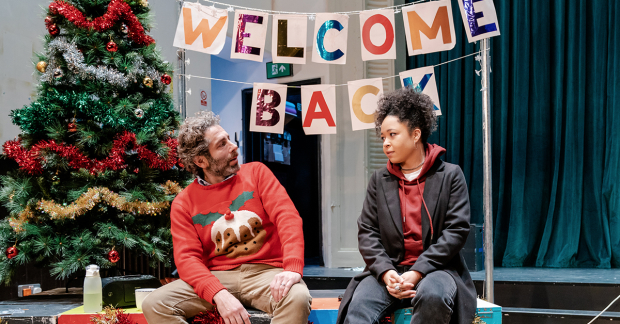
© Manuel Harlan
And you've got a busy 2020?
The first half of the year is all about revisiting old work – Albion [at the Almeida] and Love, Love, Love [at the Lyric Hammersmith]. I never thought I'd get a chance to see my plays revived – it's nearly a decade since Love, Love, Love and it is interesting how time can turn these plays into history plays – that gives them a whole new life and means audiences can watch them in a completely different way. With Albion, we'll have a completely different sense of Brexit by the time the show comes around, and I think it'll read differently.



